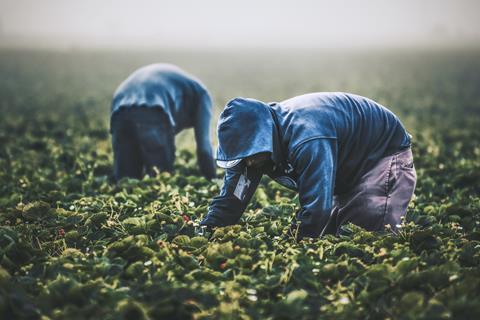
A group of investors with more than £800bn in assets across UK-listed retail, hospitality and food production businesses have called on supermarkets and the government to tackle risks of modern slavery on British farms, amid concerns the post-Brexit immigration system is exposing seasonal workers to potential exploitation.
Asset managers are calling on the likes of Tesco, Sainsbury’s and M&S, as well as other food companies in and directly sourcing from the UK agricultural supply chain, to work with their suppliers to make sure workers recruited through the government’s seasonal worker scheme are not at risk of debt bondage and other forms of forced labour.
They claim the country’s supply chain has become increasingly dependant on migrant workers from outside of the EU since Brexit, including Nepal and Indonesia – many of whom are in huge amounts of debt with recruitment agencies in their home countries, according to the charity fund manager spearheading the campaign, CCLA.
CCLA said migrant labourers coming to the UK were also at risk of being threatened with deportation, being unable to willingly leave their jobs, and being housed in unsafe accommodation.
“Brexit and the war in Ukraine have resulted in a shortage of low-skilled migrant workers for the UK agricultural sector,” the investors’ letter said.
“We are concerned that migrant workers in the UK, recruited and employed through the government’s seasonal worker scheme, are being obliged to pay excessive fees to agents and middlemen in addition to other fees, travel and visa costs for crucial but temporary roles, supporting the UK’s food sector.
“This results in a high risk of debt bondage, one of the key indicators of forced labour. Workers often have to take out loans at high interest rates or sign over assets and property to pay these fees and costs.”
The campaigners have not suggested that the publicly-listed businesses in which the investors hold shares have knowingly employed forced labour, but they have asked supermarkets and other food companies such as Whitbread and Bakkavor to take action to prevent forced labour from happening across their supply chains.
They have called on food retailers to undertake independent investigations on the scale of recruitment fees and related costs that have been made by workers recruited through the seasonal worker scheme, to ensure ethical recruitment in their businesses and supply chains, and to work with others in the industry to agree and implement a fair process to repay workers’ recruitment debts.
Read more:
- Growers welcome seasonal worker scheme expansion but warn of challenges ahead
- Concerns over criminals using seasonal worker visa to exploit labourers
- Has progress been made on fixing food’s labour crisis?
The CCLA has also warned some workers had been “deceived by promises of multi-year contracts”, but that due to the government’s late release of 8,000 visas, immigrants had found themselves “with only weeks of work and in substantial debt”.
It has asked the government to bring the seasonal worker scheme in line with international commitments to tackle modern slavery in supply chains.
Deepening labour shortages across UK farms in recent years have seen suppliers turn to overseas workers to fill their seasonal vacancies. Last week, Defra said it was expanding the 2023 seasonal worker scheme to 45,000 visas – up from 30,000 this year – to help tackle the shortages.
But investors are worried that the current design and policing of the seasonal worker scheme, originally launched in 2019, is not only exposing migrant labourers to unlawful conditions but also jeopardising the ability of their investments to comply with international commitments to tackle modern slavery in supply chains and the “growing expectations that businesses adopt responsible purchasing practices”.
“Moreover, we have concerns about business models that rely on or benefit from modern slavery and/or precarious working conditions. These models are ultimately unsustainable, and risk destroying value in the long term.
“We understand that the backdrop to these challenges is rising inflation and the cost of living, and that retailers and food producers are focused on limiting rising food prices, which mean all stakeholders are reluctant to pay for the required changes.
“However, without a well-designed and robust process for the recruitment and employment of seasonal workers, the UK food system will continue to be unstable and fragile with a greater likelihood of failure.”
The CCLA confirmed it was working in collaboration with the British Retail Consortium, the Food Network for Ethical Trade, and the Ethical Trading Initiative to convene retailers on the issue.







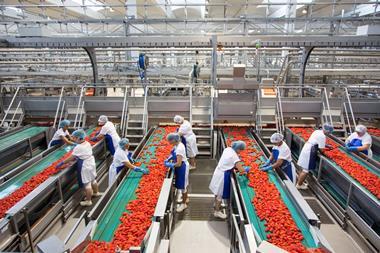
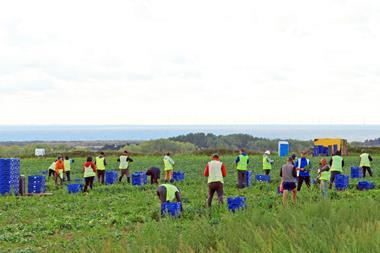
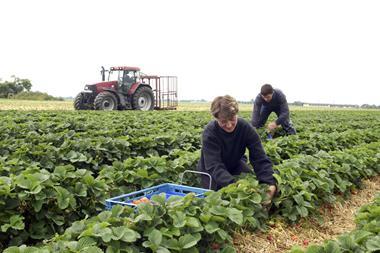
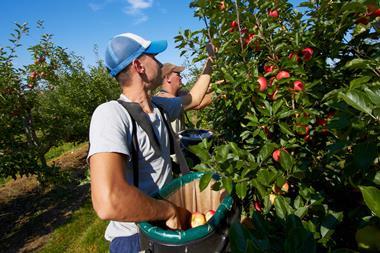








No comments yet